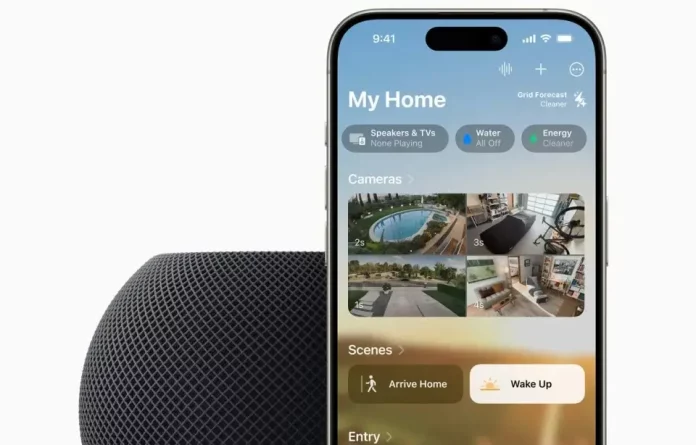Apple is reportedly preparing to introduce homeOS, a new operating system specifically designed for smart home devices, next year. The tech giant, known for its seamless integration of hardware and software, plans to release homeOS alongside a range of new smart gadgets, further expanding its ecosystem into the growing smart home market.
What is homeOS?
homeOS is expected to be a dedicated operating system for managing and controlling smart home devices, such as smart speakers, lighting, thermostats, and more. While Apple already has a platform for smart home management—HomeKit—homeOS will likely take this a step further by offering a more robust, standalone solution for controlling an entire smart home setup.
The move signals Apple’s intention to challenge other smart home ecosystems, such as Google’s Nest platform and Amazon’s Alexa ecosystem, both of which have a strong foothold in the market. By introducing homeOS, Apple could bring more cohesion to its smart home offerings, offering a user-friendly, highly integrated system that leverages the company’s hardware expertise.
Along with homeOS, Apple is rumored to be developing several new smart devices that will debut alongside the operating system. While exact details are still under wraps, speculation suggests that these devices could include new versions of the HomePod, smart cameras, and possibly even advanced home automation systems.
Apple’s strategy is expected to revolve around tight integration with existing Apple products like the iPhone, iPad, and Apple Watch, allowing users to control their home environment with ease using Siri, Apple’s voice assistant. This kind of cross-device synergy is where Apple excels, and it’s likely that the company will emphasize how homeOS can enhance the smart home experience for users already invested in the Apple ecosystem.
Apple’s push into the smart home space is not new, but homeOS represents a significant leap forward. The company has been quietly building up its smart home efforts with the HomePod, Apple TV, and HomeKit over the past few years. However, compared to Amazon’s Alexa and Google’s Nest, Apple has lagged behind in terms of market share and device variety.
With homeOS, Apple has the opportunity to regain momentum and establish itself as a major player in the smart home market. If the company manages to deliver a seamless, easy-to-use ecosystem of smart devices powered by homeOS, it could become a strong competitor to existing platforms.
Though no official release date has been confirmed, it’s likely that Apple will unveil homeOS and its new devices during their annual product events, such as WWDC or their fall keynote. As Apple continues to expand its ecosystem, it will be interesting to see how homeOS fits into their broader strategy, especially in the face of stiff competition from Google and Amazon.

